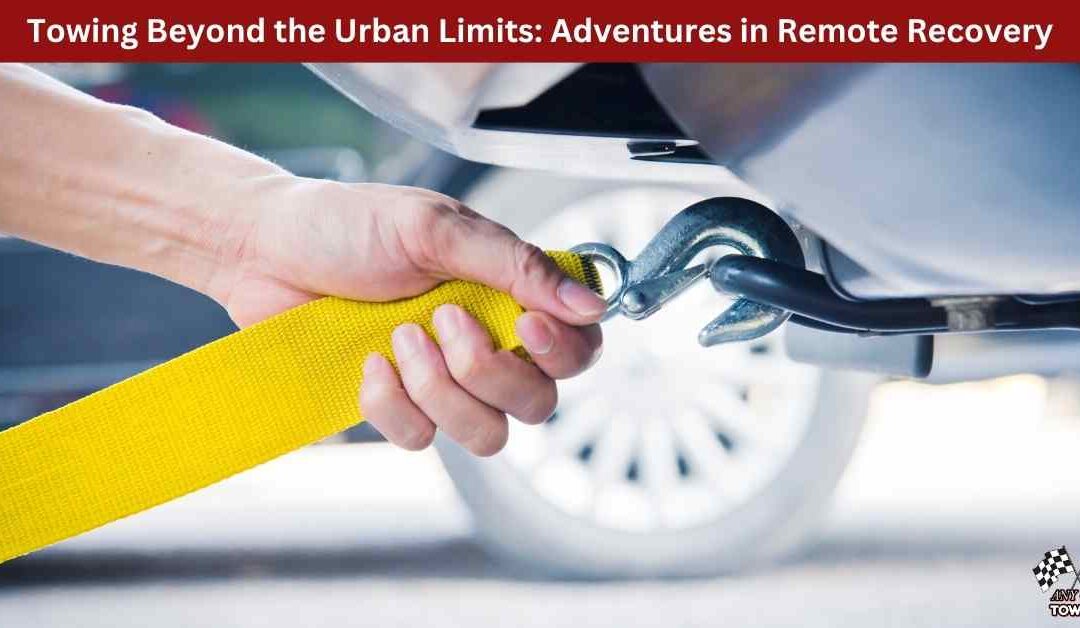Most people picture tow trucks cruising through city streets, picking up broken-down cars or clearing roadside accidents. But towing isn’t always an urban job. Sometimes the call comes from well beyond the suburbs—out in the bush, along coastal tracks, or on those long stretches of highway where towns are few and far between. That’s when towing turns into something else entirely: remote recovery.
Why remote recovery is different
In the city, help is usually just a few minutes away. Out in the middle of nowhere, things aren’t that simple. Distances are longer, mobile reception is patchy, and the terrain itself can be unpredictable. Getting to the stranded vehicle is often the hardest part of the job. Tow operators working in remote areas have to be problem-solvers, ready for sand, mud, steep inclines, or rough gravel roads.
Common challenges off the beaten path
- Distance and time: A “quick job” can turn into hours of driving just to reach the breakdown.
- Limited access: Some tracks are too narrow or uneven for larger trucks, requiring smaller recovery vehicles or creative solutions.
- Weather conditions: Heavy rain, flooding, or extreme heat can make recovery even trickier.
- Vehicle variety: In remote areas, it’s not always sedans and hatchbacks—it could be 4WDs, caravans, or even farm machinery.
Stories from the road
One of our most memorable recoveries involved a family who had broken down on the way to a camping trip in the Grampians. Their 4WD had overheated on a dirt track miles from the main road. Our operator not only had to navigate tricky terrain but also bring extra coolant and supplies to get the vehicle mobile enough to tow back safely.
Another time, we were called to assist a ute stuck halfway down a sandy coastal track. A combination of winching, traction boards, and sheer patience got it free. The relief on the driver’s face said it all—being stranded somewhere remote can feel overwhelming until help arrives.
Tools and techniques that make it possible
Remote recoveries call for more than a standard tow truck setup. Operators often rely on:
- Winches and snatch blocks: To pull vehicles out of bogs or off embankments.
- Traction boards and shovels: For sandy or muddy conditions.
- All-terrain tow trucks: Equipped with stronger suspension and tires built for rough roads.
- Satellite communication: When mobile coverage drops out, sat phones keep operators in touch with the base.
Safety first, always
Remote recovery isn’t just about getting the vehicle out—it’s also about keeping everyone safe. Operators must be cautious about working in isolated areas, watching for wildlife, and managing fatigue on long trips. Customers are often advised to stay with their vehicle, conserve phone battery, and carry basic emergency supplies while waiting for assistance.
What it means for drivers
Breaking down in a remote area can feel daunting, but knowing there are professional tow services equipped for the job makes all the difference. For drivers, the best way to prepare is by keeping vehicles well-maintained before long trips, carrying extra water and supplies, and having a backup plan for communication in case of emergencies.
A thought to leave you with
Remote recovery is more than towing—it’s a lifeline for drivers in tough situations far from home. It’s about resilience, resourcefulness, and the reassurance that no matter how far you’ve driven off the map, help can still find you.
Now Any Car Towing is available in Narre Warren Victoria 3805.
Contact Us
Any Car Towing
10 Silvergum Pl, Cranbourne VIC 3977
0413 176 223


Recent Comments